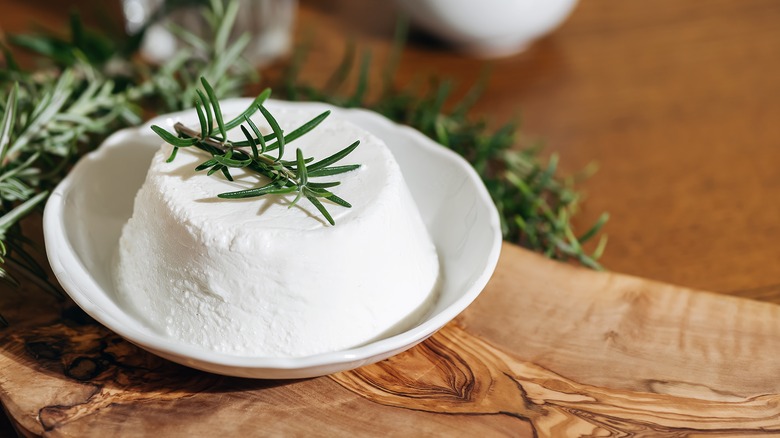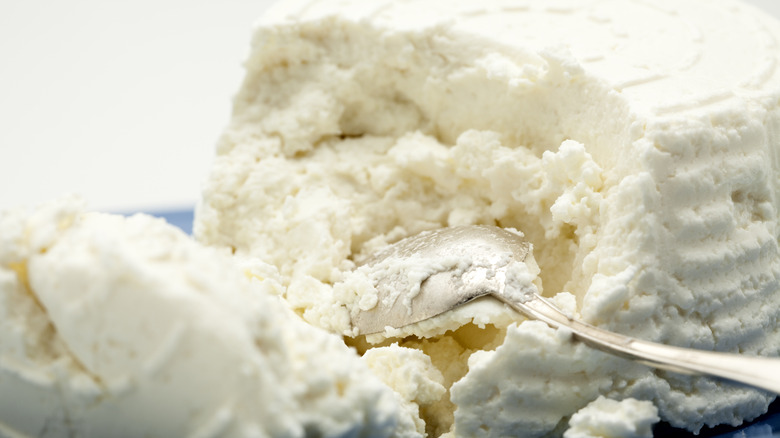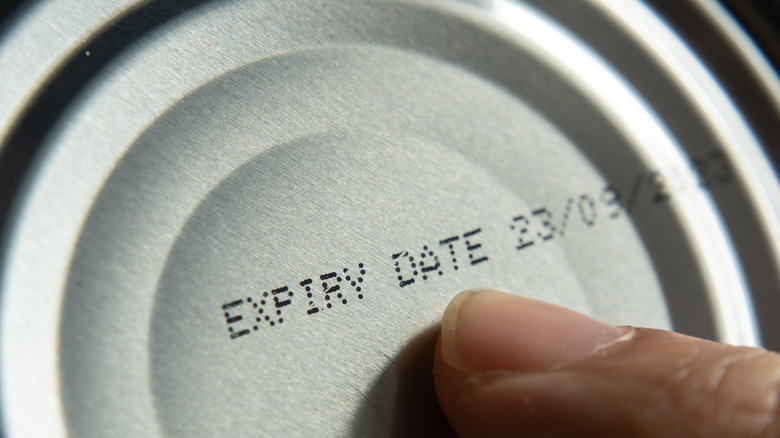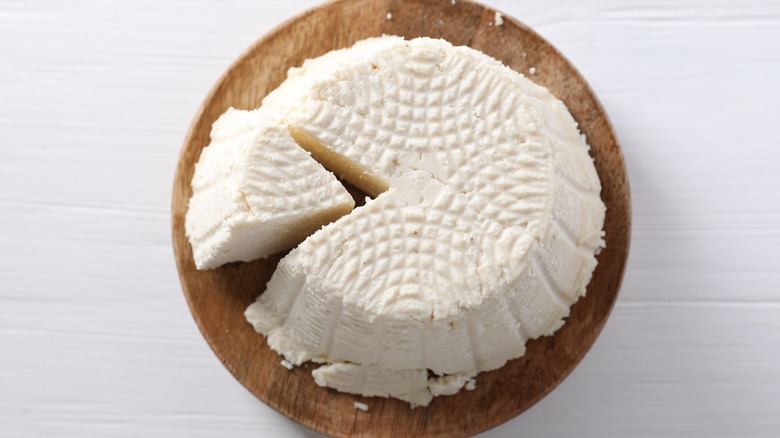The Last Day You Can Still Eat Ricotta Cheese After Opening It
So you've got a tub of ricotta that's been sitting in the fridge, and you're wondering whether it's still good to use (maybe to spread on toast, or to mix with spinach and stuff into cannelloni). Although it's a cheese, don't expect it to survive as long as its harder siblings like parmesan or cheddar. Soft cheeses like ricotta should last around one week after opening, according to the USDA — that's provided you're storing it between 35 and 40 degrees Fahrenheit (that is, at normal fridge temperatures). Some sources suggest that ricotta may last up to two weeks, but past that one-week mark you should look for signs of spoilage (more on that in a moment). And if it's been sitting for more than two weeks, throw it away.
You can try to extend ricotta's life by freezing it, but that may not yield the most appetizing results. This is because the water in the cheese will separate from the fat, making for a clumpy and not particularly appealing (or smooth) product when it gets defrosted, even though the taste should still be okay. It should last around two months in the freezer, but don't even think about freezing it a second time once thawed, as the texture will get even worse.
How to tell if your ricotta cheese is still good
If you're unsure whether your ricotta is still okay to eat, put your eyes and nose to work inspecting that creamy tub of cheese. If there's any sign of mold on the cheese, that's bad news, and you'll want to throw it away. While mold can be cut off hard cheese (allowing you to eat what's left), the same doesn't work for ricotta, as mold gets into soft cheese below the surface, meaning you may still get sick even if you get rid of the visible moldy parts. Mold on ricotta can be green, blue, or soft pink. If the ricotta has also turned a yellowish color (instead of its regular creamy white), it's another sign of spoilage.
You can also apply the sniff test to ricotta. Ricotta that's fine to eat will either have no odor at all, or it might have a regular milky smell. If it starts to develop a sour or fermented smell, throw it away (even if the odor isn't rancid or unpleasant), as it's another bad sign.
Don't put too much weight on the expiration date
It may also be worth paying attention to exactly what kind of "expiration" date is on your ricotta (or any perishable product, for that matter). A "sell by" date isn't really an indicator of whether ricotta is good to eat — it's really only a suggestion for retailers to sell the product at its freshest; most food (dairy products like ricotta included) will be fine to eat for a week after this, and potentially more. Realistically, you're better off looking for signs of spoilage instead of worrying about this date.
A "use by" date is a little more serious, but shouldn't be taken as an absolute. Food past this date will probably be less fresh but should often be totally safe to eat. This date tends to be used more for shelf-stable food (think of canned goods or dried food like lentils or pasta), so you're less likely to even see it printed on ricotta packaging. Finally, an expiration date is a firmer indication of when your ricotta might go bad, but plenty of experts still say they're not particularly reliable. Instead, use your eyes and nose to check ricotta, as it may be fine for a few days longer than its so-called expiration date would suggest.
How to use up leftover ricotta cheese
If you've found yourself with ricotta cheese that's nearing its end, it's time to get cooking. Follow this fluffy lemon ricotta pancakes recipe for a tasty way to start your day. Not in the mood for a lemon flavor? Add ricotta cheese to any boxed mix for luxurious pancakes.
When you're in the mood for something savory, try making a springy asparagus and lemon ricotta tart or classic cheesy baked ziti.



